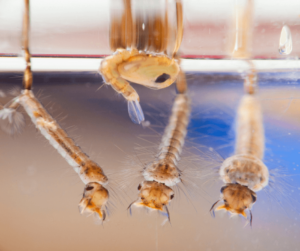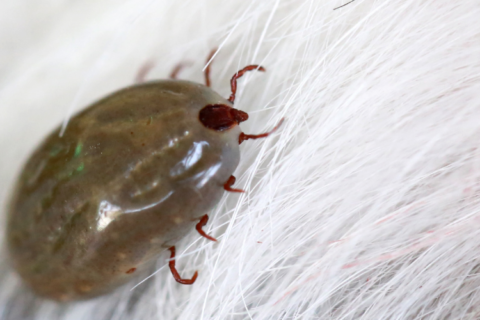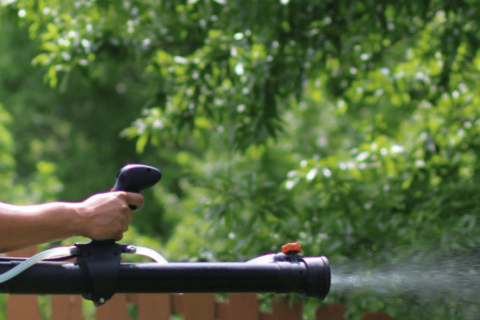Mosquito Life Cycle

Spring is a time of renewal and growth, but it also means the return of pesky mosquitoes. These buzzing insects can quickly dampen outdoor activities with their itchy bites. Learning about the mosquito life cycle is essential to better understanding how to combat these pests.
Eggs
- Mosquitoes need water to start their life cycle.
- Some species lay their eggs singly on the water surface, others lay several eggs at a time in rafts that float on water, others lay eggs inside containers above the water line, and others on moist soil.
- Mosquitoes generally lay 100 eggs at a time.
- Eggs are very sturdy; they adhere to the walls of a container like glue and can survive drying for up to 8 months, even through the winter.
- Mosquito eggs can hatch in 24 to 48 hours.
Larva
- When eggs are submerged in water, they develop into larvae. This means that rainwater or humans adding water to containers with eggs will trigger the larvae to emerge.
- Depending on the temperature, they live in water for 4 to 14 days.
- Mosquito larvae are often called “wrigglers” or “wigglers” because they appear to wiggle sporadically in the water when disturbed.
- Larvae feed on algae and other microscopic organisms in the water since maturation requires considerable energy and food.
- Larvae are often found around the home in puddles, tires, or within any object holding water.
- Larvae molt their skins 3 to 4 times during growth, each known as an instar.
- When the 4th instar larva molts, it becomes a pupa.
Pupa
- Pupae (plural of pupa), also known as “tumblers,” live in water for about 1 to 4 days and just float at the surface.
- Pupae are a resting stage of development but are mobile and respond to light changes.
- When disturbed, they swim by tumbling rapidly and then float back to the surface.
- Unlike larvae, pupae do not eat or molt but only breathe air and undergo internal changes to form an adult insect.
- The adult mosquito develops inside the pupa, splits its pupal skin, and completes its life cycle in the water.
Adult
- Adult mosquitoes rest on the water surface post-emergence to dry and harden.
- An adult mosquito will mate within 1 to 2 days after its body parts harden.
- A female mosquito mates only once in her lifetime. In some species, mating occurs with the males in a mating swarm.
- Only female mosquitoes require blood meals to develop their eggs.
- Male mosquitoes do not bite; they feed only on plant juices for energy.
- After feeding, the female mosquito will search for water sources to lay more eggs.
How Long Is The Mosquito Life Cycle?
The entire life cycle of a mosquito, from an egg to an adult, takes approximately 8-10 days. If left unchecked, mosquitoes can quickly become a nuisance and a health hazard.
Vogelsang Pest Management offers various pest control services for homeowners and businesses throughout St. Charles, Lincoln, and St. Louis counties in Missouri. Contact us today so you can enjoy the upcoming spring season pest-free!


